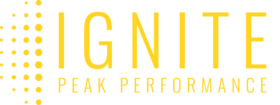 When I started to think about becoming a coach, I first asked myself, “Does coaching work?” I’d been a doctorate-level psychologist for many years—I was not about to engage with something that didn’t have any evidence to back it up. I’d heard stories of uncredentialed, unstandardized life coaching, so I was skeptical. After all, anyone can call themselves a coach. Very quickly, I decided, “No, coaching doesn’t work, and I do not want any part of it.”
When I started to think about becoming a coach, I first asked myself, “Does coaching work?” I’d been a doctorate-level psychologist for many years—I was not about to engage with something that didn’t have any evidence to back it up. I’d heard stories of uncredentialed, unstandardized life coaching, so I was skeptical. After all, anyone can call themselves a coach. Very quickly, I decided, “No, coaching doesn’t work, and I do not want any part of it.”
But the more research I did, the more I learned about the outstanding training programs and standardized certifications offered in the coaching field. I realized that both things are true. Coaching is an unregulated profession, and anyone can call themselves a coach. There are also challenging and credible training programs and certifications. I chose to attend the College of Executive Coaching because their training is rigorous and grounded in science. I went on to become credentialed through both the International Coaching Federation and the National Board for Health and Wellness Coaching.
 Since working on my credentials, I have had multiple experiences both being coached and coaching. Of course, I know that nothing on the planet has a 100% success rate, but I have yet to see coaching not work when the client is committed and the coach is highly trained. The research clearly supports that coaching works.
Since working on my credentials, I have had multiple experiences both being coached and coaching. Of course, I know that nothing on the planet has a 100% success rate, but I have yet to see coaching not work when the client is committed and the coach is highly trained. The research clearly supports that coaching works.
So, what is the cornerstone of good coaching? Dave Wondra, an early pioneer in the field of coaching and CEO of the WondraGroup, put it like this:
“At the heart of a professional coaching relationship is the sole focus on your agenda, period. It’s rare to find this level of attention on what you personally want, anywhere else in life.”
Regardless of how well-trained your coach is, the relationship matters. Coaching offers a relationship that focuses on you, the client almost exclusively. Sure, your coach might ask if they can share a story now and then if they think it will help you. They might get sick and need to cancel. Overall, though, the relationship is about you and your needs. Friends and family, who are there to support you, aren’t trained to help you meet your goals. Of course, they can help! They can be an accountability buddy for our workouts, and they can give you advice when you ask for it. But your friends and family also aren’t there only to support you. The time you spend with them isn’t tailored to what YOU need, which is exactly what coaching does offer. For women espeically, being socialized to be caretakers and  to meet the needs of others means it can be difficult to focus just on ourselves. Even in the most perfectly balanced relationships, you (usually) can’t always focus on yourself almost 100% of the time. With a coach, that is exactly what you do.
to meet the needs of others means it can be difficult to focus just on ourselves. Even in the most perfectly balanced relationships, you (usually) can’t always focus on yourself almost 100% of the time. With a coach, that is exactly what you do.
However, having a great relationship where you feel heard and understood generally isn’t sufficient for you to achieve your goals. A professional coach, if they’re a good one, has spent years learning the most effective techniques to help people cope with stress, survive big life transitions, accomplish their health and wellness goals, change their mindset, and/or meet their career goals. A credible coach will know the science behind what techniques work and will have experience using them to help people from all walks of life accomplish an array of specific goals. I’m completely confident that coaching works and, most importantly, the data support that!
If you think I might be the right professional coach to help support you, feel free to reach out! I would be happy to coach you or to point you in the right direction if I think there is a better resource to meet your needs.
